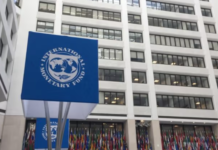When nations shift currencies, the real challenge is rarely technical — it is psychological. Zimbabwe’s de-dollarisation journey is no exception. The Reserve Bank of Zimbabwe (RBZ) has rolled out the Zimbabwe Gold (ZiG) with the ambition of restoring monetary sovereignty and reducing dependence on the US dollar. But unless Zimbabweans believe in ZiG, unless businesses adopt it willingly, and unless markets see it as credible, this reform risks falling into the same credibility trap that has haunted past policy efforts.
By Brighton Musonza
This is where marketing communications become the decisive factor. Economic reforms fail when people do not understand them, mistrust them, or feel excluded from them. For Zimbabwe, the battle for de-dollarisation will not be won in policy documents but in hearts, minds, and mobile phones.
The Case for Phased Communication
A roadmap for currency reform must be executed in deliberate phases.
-
Phase One: Awareness. Zimbabweans need to understand ZiG — what it is, how it works, and where it can be used. This calls for mass campaigns across radio, television, community meetings, and digital platforms.
-
Phase Two: Confidence-Building. Once awareness is achieved, the messaging must shift to reinforcing trust. Here, transparency is crucial — clear reporting on exchange rate stability, inflation progress, and reserves backing the ZiG.
-
Phase Three: Consolidation. The final stage involves selling ZiG not only to citizens but also to businesses, investors, and regional trade partners. The narrative must show that Zimbabwe is open for business, competitive in trade, and stable in policy direction.
This phased structure ensures that communication evolves alongside policy execution, instead of remaining static.
Why RBZ Needs a Communications Consultant
Central banks traditionally focus on monetary tools — interest rates, liquidity injections, currency supply. Yet, in modern economies, currency trust is shaped as much by communication as by economics.
A professional marketing communications consultant can transform de-dollarisation into a compelling national narrative. They bring expertise in:
-
Audience segmentation — tailoring messages to informal traders, urban professionals, rural communities, and international investors.
-
Message framing — balancing technical accuracy with emotional resonance.
-
Campaign integration — ensuring consistency across traditional media, digital platforms, and grassroots mobilisation.
-
Crisis communication — managing misinformation and panic before it destabilises markets.
Without this expertise, Zimbabwe risks repeating a pattern where economic reforms collapse under the weight of poor communication.
The Digital Marketplace: A Game-Changer
Beyond traditional campaigns, Zimbabwe urgently needs a dedicated digital marketplace platform — a standalone website, distinct from RBZ’s official portal, designed to anchor the de-dollarisation project.
This platform would serve as the central hub for:
-
Real-time exchange rate dashboards.
-
Plain-language FAQs for citizens.
-
Infographics, videos, and tutorials explaining ZiG.
-
Interactive features like chatbots or forums.
-
Multilingual access — in English, Shona, Ndebele, and more.
-
SEO-driven content, ensuring global discoverability.
Social media campaigns — on WhatsApp, X, Facebook, TikTok — should all link back to this marketplace. Over time, as the site permeates search engines, it becomes a trusted source of truth, outcompeting misinformation and black-market narratives.
This is not theory. Countries like India (during demonetisation) and Nigeria (with the eNaira) launched dedicated online hubs to manage citizen engagement. Even the European Central Bank uses sophisticated digital portals to guide eurozone citizens through reforms. Zimbabwe must learn from these global models.
The Economics of Trust
From an economics perspective, de-dollarisation is not just about reducing USD circulation; it is about changing entrenched consumer behaviour. Zimbabweans are dollarised not just financially but psychologically. They trust the US dollar because it feels safe and familiar.
Reversing this requires behavioural economics-informed communications.
-
Consistency. Repeated, reliable messages build confidence. Mixed signals destroy it.
-
Transparency. Citizens must see the data — reserves, inflation trends, currency stabilisation efforts. Hiding information fuels black markets.
-
National Pride Narrative. ZiG must be positioned not just as currency, but as a symbol of sovereignty. “Buying Zimbabwean, paying in ZiG” must become a patriotic act.
-
Social Proof. The more visible business leaders, influencers, and retailers use ZiG, the faster adoption spreads.
As Nobel laureate Robert Shiller argued, economic success is shaped by “narrative economics” — the stories societies tell themselves about money. ZiG must become a story of national pride and resilience.
Regional and Business Implications
If properly communicated, Zimbabwe’s de-dollarisation can create a new competitive identity in regional markets. A stable ZiG would:
-
Strengthen Zimbabwe’s position in the African Continental Free Trade Area (AfCFTA).
-
Attract diaspora remittances into local channels instead of parallel markets.
-
Boost confidence in platforms like the Victoria Falls Stock Exchange (VFEX), positioning Zimbabwe as a frontier investment hub.
But without trust, businesses will bypass ZiG, investors will hesitate, and the black market will thrive. Communication is therefore not just a PR exercise — it is an economic growth strategy.
Communication Blueprint
1. Objective
To build trust, awareness, and adoption of the Zimbabwe Gold (ZiG) as the cornerstone of the de-dollarisation agenda, by executing a phased marketing communications strategy that engages citizens, businesses, and regional stakeholders.
2. Core Principles
-
Transparency: Regular, factual updates that show economic progress.
-
Inclusivity: Messaging tailored to all Zimbabwean communities — urban, rural, youth, diaspora.
-
Consistency: Unified narrative across all platforms.
-
Digital-first: Leverage online platforms to counter misinformation and improve accessibility.
-
Behavioural Economics: Use trust-building, social proof, and national pride to shift entrenched dollarised behaviour.
3. Phased Roadmap
Phase One: Awareness (0–6 Months)
Goal: Educate Zimbabweans on ZiG and de-dollarisation.
Target Audiences:
-
Urban residents (Harare, Bulawayo).
-
Informal traders (Mbare, Mupedzanhamo, Musika hubs etc).
-
Rural communities.
-
Diaspora remitters.
Tactics:
-
Radio/TV Campaigns: Simple, relatable explanations in Shona, Ndebele, English.
-
Community Outreach: Roadshows, church gatherings, market centre activations.
-
Digital Launch: Dedicated de-dollarisation website (separate from RBZ) with FAQs, exchange dashboards, multilingual info.
-
Social Media: Short video explainers, WhatsApp voice notes, meme-friendly infographics.
Key Message: “ZiG is Zimbabwe’s money — safe, usable, and backed by real value.”
Phase Two: Confidence-Building (6–18 Months)
Goal: Reinforce trust in ZiG through transparency and credibility.
Target Audiences:
-
Businesses (retail, wholesale, transport).
-
SMEs and informal traders.
-
Regional trade partners (SADC).
-
Investors (local & diaspora).
Tactics:
-
Monthly Transparency Reports: Inflation data, reserves backing, ZiG circulation numbers — visually packaged for public trust.
-
Thought Leadership: RBZ Governor + influencers publishing blogs, opinion columns, explainer videos.
-
Digital Engagement: Livestream Q&A sessions on Facebook/Twitter with economists.
-
Influencer Partnerships: Mobilise respected Zimbabweans — economists, journalists, musicians — as “ZiG ambassadors.”
Key Message: “Trust ZiG: Transparent, stable, and growing with you.”
Phase Three: Consolidation (18–36 Months)
Goal: Institutionalise ZiG as the everyday currency for all markets.
Target Audiences:
-
Corporates, exporters, and AfCFTA partners.
-
Diaspora investors.
-
Multinationals operating in Zimbabwe.
Tactics:
-
Diaspora Campaigns: Target UK, South Africa, US diaspora communities via diaspora associations and digital ads.
-
Regional Branding: Position ZiG as a legitimate trade currency through AfCFTA platforms.
-
Integration with VFEX: Encourage foreign investment flows into Zimbabwe’s capital markets.
-
Patriotic Branding: Cultural campaigns (music, arts, sports sponsorships) embedding ZiG as “the people’s money.”
Key Message: “ZiG is here to stay — the foundation for Zimbabwe’s future.”
4. Digital Marketplace Hub
A standalone ZiG Digital Marketplace Platform should be created with the following features:
-
Real-time exchange rates and ZiG trackers.
-
FAQs in English, Shona, Ndebele.
-
Chatbot for public queries.
-
Explainer videos and tutorials.
-
Resource hub for businesses (guides for pricing, accounting, remittances).
-
SEO-driven content to dominate Google search and counter parallel market misinformation.
Every post on WhatsApp, X, Facebook, and Instagram must click-link back to this hub.
5. Media & Messaging Channels
-
Mass Media: ZBC, Star FM, ZiFM, print dailies (Daily News, NewsDay, Zimbabwe Independent).
-
Digital: Social media, website, YouTube, podcasts.
-
Grassroots: Churches, schools, rural cooperatives, savings clubs.
-
Diaspora Engagement: Embassies, diaspora business forums, international Zimbabwean media (ZimEye, Nehanda Radio).
6. Monitoring & Evaluation
Metrics of Success:
-
Increase in formal transactions in ZiG vs USD.
-
Website traffic and engagement (monthly).
-
Positive sentiment shift on social media (measured via analytics tools).
-
Reduction in black-market premium gaps.
-
Business adoption (retailers, SMEs reporting higher ZiG usage).
7. Risks & Mitigation
-
Risk: Misinformation spreads faster than official updates.
-
Mitigation: Rapid-response digital communications team to counter fake news.
-
-
Risk: Market scepticism due to past policy failures.
-
Mitigation: Radical transparency — regular data releases, independent verification.
-
-
Risk: Political hijacking of ZiG narrative.
-
Mitigation: Ensure communications are technocratic, not partisan.
-
Final Note
De-dollarisation will succeed only if it is marketed like a product launch. ZiG is not just a currency — it is a brand. To make it work, Zimbabwe needs more than economics. It needs storytelling, digital-first communication, and behaviour-shaping campaigns that restore public trust in money.
Conclusion
Zimbabwe’s de-dollarisation is not merely about monetary policy. It is about trust, perception, and communication.
The RBZ must adopt a phased, segmented communications roadmap, enlist professional marketing expertise, and anchor the process with a dedicated digital marketplace. Social media and digital tools must amplify this, with every post, voice note, and advert pointing back to the central platform.
This is not about hope, but about strategy. Without effective communication, ZiG risks becoming another failed experiment. With it, Zimbabwe could reclaim monetary sovereignty, rebrand its economy, and set an African precedent for successful de-dollarisation.










